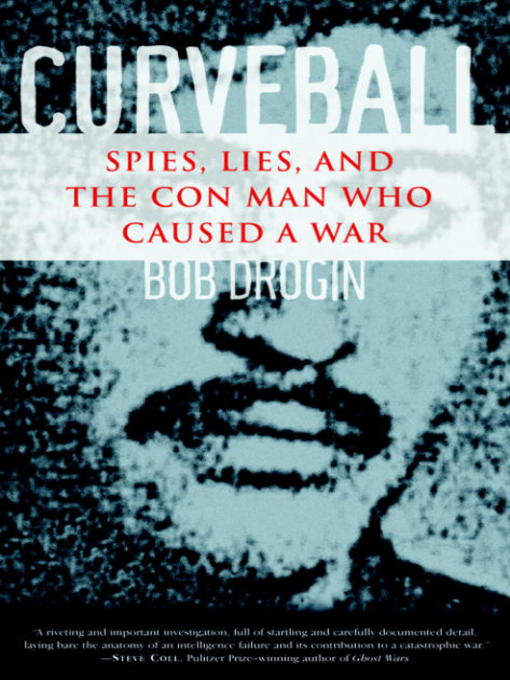“A crucial study in the political manipulation of intelligence, understanding how Curveball got us into Iraq will arm us for the next round of lies coming out of Washington.”—Robert Baer, author of See No Evil: The True Story of a Ground Soldier in the CIA's War on Terrorism
Curveball answers the crucial question of the Iraq war: How and why was America’s intelligence so catastrophically wrong? In this dramatic and explosive book, award-winning Los Angeles Times reporter Bob Drogin delivers a narrative that takes us to Europe, the Middle East, and deep inside the CIA to find the truth—the truth about the lies and self-deception that led us into a military and political nightmare.
Praise for Curveball
“Just when you thought the WMD debacle couldn’t get worse, here comes veteran Los Angeles Times national-security correspondent Drogin’s look at just who got the stories going in the first place. . . . Simultaneously sobering and infuriating—essential reading for those who follow the headlines.”—Kirkus Reviews
“In this engrossing account, Los Angeles Times correspondent Drogin paints an intimate and revealing portrait of the workings and dysfunctions of the intelligence community.”—Publishers Weekly
“An insightful and compelling account of one crucial component of the war's origins . . . Had Drogin merely pieced together Curveball's story, it alone would have made for a thrilling book. But he provides something more: a frightening glimpse at how easily we could make the same mistakes again. . . . The real value of Drogin's book is its meticulous demonstration that bureaucratic imperative often leads to self-delusion.”—Washington Monthly
“Drogin delivers a startling account of this fateful intelligence snafu.”—Booklist
“By the time you finish this book you will be shaking your head with wonder, or perhaps you will be shaking with anger, about the misadventures that preceded the misadventures in Iraq. This book is so powerful, it almost refutes its subtitle: The man called Curveball did not cause a war; he became a pretext—one among many.”—George F. Will
- Hot and Ready eBooks!!
- New eBook additions
- Try something different
- Most popular
- Let's Cook!
- Happily Ever After
- New Year, New Hobbies
- See all ebooks collections
- Hot and Ready eAudio!!
- New audiobook additions
- Try something different
- Most popular
- Award Winners
- Full Cast Productions
- Happily Ever After
- See all audiobooks collections


